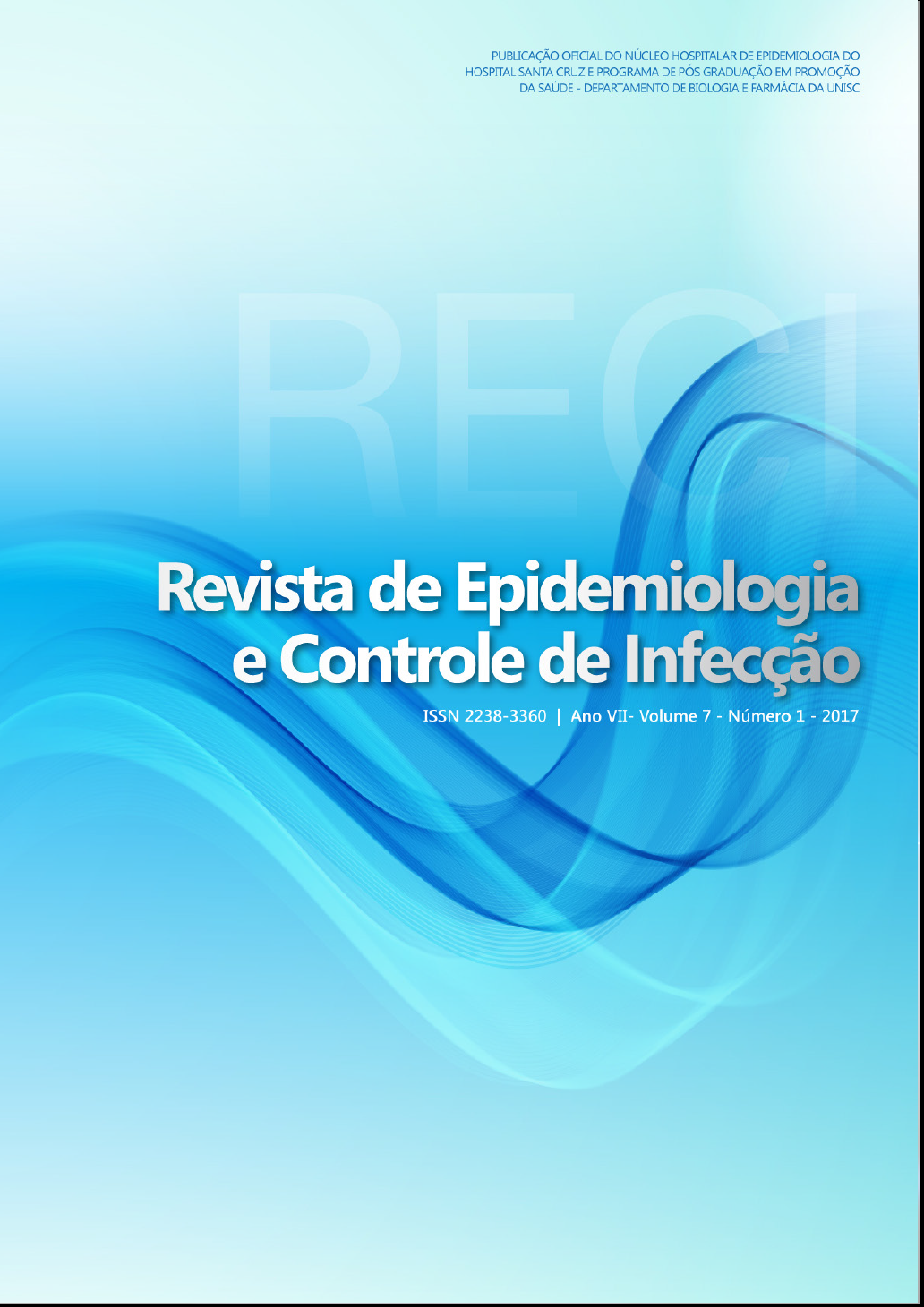Escherichia coli resistant Ciprofloxacin in hospitalized patients in University Hospital
DOI:
https://doi.org/10.17058/reci.v7i1.7758Abstract
ABSTRACT Background and Objectives: Urinary tract infections are among the most common of Infection Related to Health Care, and Escherichia coli is the most concerned agent. Based on this, we sought to estimate the frequency of urinary tract infections by Escherichia coli, including those resistant to ciprofloxacin in patients hospitalized at the University Hospital Getulio Vargas in 2015. Methods: evaluation of urine cultures with infection (114 urine cultures> 105 CFU / ml), in particular Escherichia coli (44 urine cultures > 105 UFC/ml) in hospitalized patients and tab in Microsoft Excel for statistical analysis. Results: The study found a prevalence of 56.81% (25/44) of urinary infections by Escherichia coli resistant to ciprofloxacin, most notably for women (56%). Among all urinary tract infections in the hospital the frequency of this bacterium resistant to ciprofloxacin was 21.92% (25/144) Conclusions: urinary tract infections at the University Hospital Getúlio Vargas follow the literature findings: more common in females, with the more agent frequent Escherichia coli, and 56.81% ciprofloxacin resistant. Keywords: urinary tract infection, Escherichia coli, drug resistance, ciprofloxacinDownloads
Downloads
Published
How to Cite
Issue
Section
License
The author must state that the paper is original (has not been published previously), not infringing any copyright or other ownership right involving third parties. Once the paper is submitted, the Journal reserves the right to make normative changes, such as spelling and grammar, in order to maintain the language standard, but respecting the author’s style. The published papers become ownership of RECI, considering that all the opinions expressed by the authors are their responsibility. Because we are an open access journal, we allow free use of articles in educational and scientific applications provided the source is cited under the Creative Commons CC-BY license.


